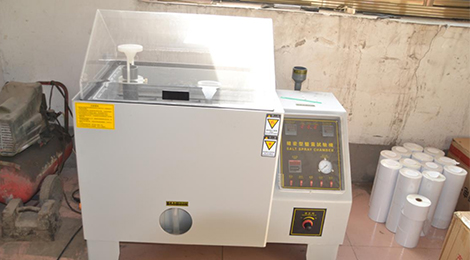washers for carriage bolts factory
Dec . 03, 2024 16:15 Back to list
washers for carriage bolts factory
The Essential Role of Washers in Carriage Bolt Applications
When it comes to construction and woodworking projects, the importance of choosing the right fasteners cannot be overstated. Carriage bolts, known for their unique design and reliability, are widely used in various applications, from securing wooden structures to fastening metal components. However, the performance of these bolts can be significantly enhanced by the inclusion of washers, which ensure stability and durability in connections. In this article, we will explore the significance of washers for carriage bolts, their various types, and the factors to consider when selecting the right washer for your application.
Understanding Carriage Bolts
Carriage bolts are characterized by their round heads and square necks, which prevent the bolt from turning when a nut is being tightened. This design makes them particularly useful in applications that require a secure hold without the need for a wrench on the head side. Carriage bolts are typically employed in wooden connections, such as the assembly of furniture, and in metal structures, such as railings and frames.
The Role of Washers
While carriage bolts are sturdy on their own, the addition of washers significantly enhances their performance. Washers serve several key functions
1. Load Distribution Washers help distribute the load over a larger surface area. When a washer is placed under the head of the bolt or the nut, it minimizes the risk of damage to the material being fastened. This is particularly important when working with softer materials like wood, where compression can lead to splitting.
2. Friction Reduction The use of washers can reduce friction during tightening. This is beneficial when dealing with high-torque applications, as it allows for smoother adjustment without damaging the bolt or the connected materials.
3. Corrosion Protection Certain types of washers, such as those made of stainless steel or coated with protective materials, can help prevent corrosion. This is particularly vital in outdoor applications where exposure to moisture and environmental elements can lead to rust and degradation.
4. Vibration Absorption Some washer designs, like rubber or nylon washers, can absorb vibrations and movements, helping to maintain a tight connection over time. This reduces the chances of loosening due to vibrations from machinery or traffic.
Types of Washers for Carriage Bolts
There are several types of washers that can be utilized with carriage bolts, each serving specific purposes
washers for carriage bolts factory

- Flat Washers The most common type, flat washers provide a smooth surface under the bolt head or nut to distribute the load evenly
.- Lock Washers Designed to prevent loosening, lock washers, such as split or tooth washers, grip the surfaces together, making them ideal for applications with movement.
- Fender Washers These washers have a larger outer diameter, providing increased load distribution and are often used in applications where aesthetics matter, like visible connections on furniture.
- Rubber Washers Offering a soft barrier that can absorb vibrations and prevent corrosion, rubber washers are excellent for outdoor constructions and mechanical connections.
Considerations for Selecting Washers
When selecting washers for carriage bolts, it is crucial to consider several factors
- Material Compatibility Ensure that the washer material is compatible with both the bolt and the material being fastened to avoid galvanic corrosion.
- Load Requirements Assess the load the connection will bear and choose a washer that can adequately handle those stresses.
- Environmental Conditions For outdoor usage or exposure to corrosive substances, opt for washers with protective coatings or made from corrosion-resistant materials.
- Size Matching Choose washers that correspond to the diameter of the carriage bolts to ensure a snug fit and effective load distribution.
Conclusion
Washers may seem like a simple addition to fasteners like carriage bolts, but their impact on longevity and performance cannot be overlooked. By choosing the right washer, you can enhance the durability of your projects, ensuring a robust and reliable connection. Understanding the different types of washers and their applications will help you make informed decisions, leading to successful construction outcomes and increased satisfaction with your work. Whether you are a professional contractor or a DIY enthusiast, investing in quality washers can make all the difference in your fastening solutions.
Latest news
-
High-Quality Panel Stud Bolt Reliable Panel Stud Bolt Factory & Suppliers
NewsJul.08,2025
-
High-Precision Fine Thread Locknuts Manufacturer & Supplier Custom Solutions
NewsJul.08,2025
-
PH Imperial Stud Bolt – High Strength Fasteners from Leading Supplier & Factory
NewsJul.07,2025
-
High-Quality Allen Wrench Bolts Leading Factory, Company & Suppliers
NewsJul.07,2025
-
Wholesale Ball Stud Bolt - High Quality Supplier & Factory Price Reliable Wholesale Ball Stud Bolt Company
NewsJul.06,2025
-
High-Strength Alloy Bolts Manufacturer & Supplier Quality Alloy Fasteners Factory
NewsJul.06,2025
